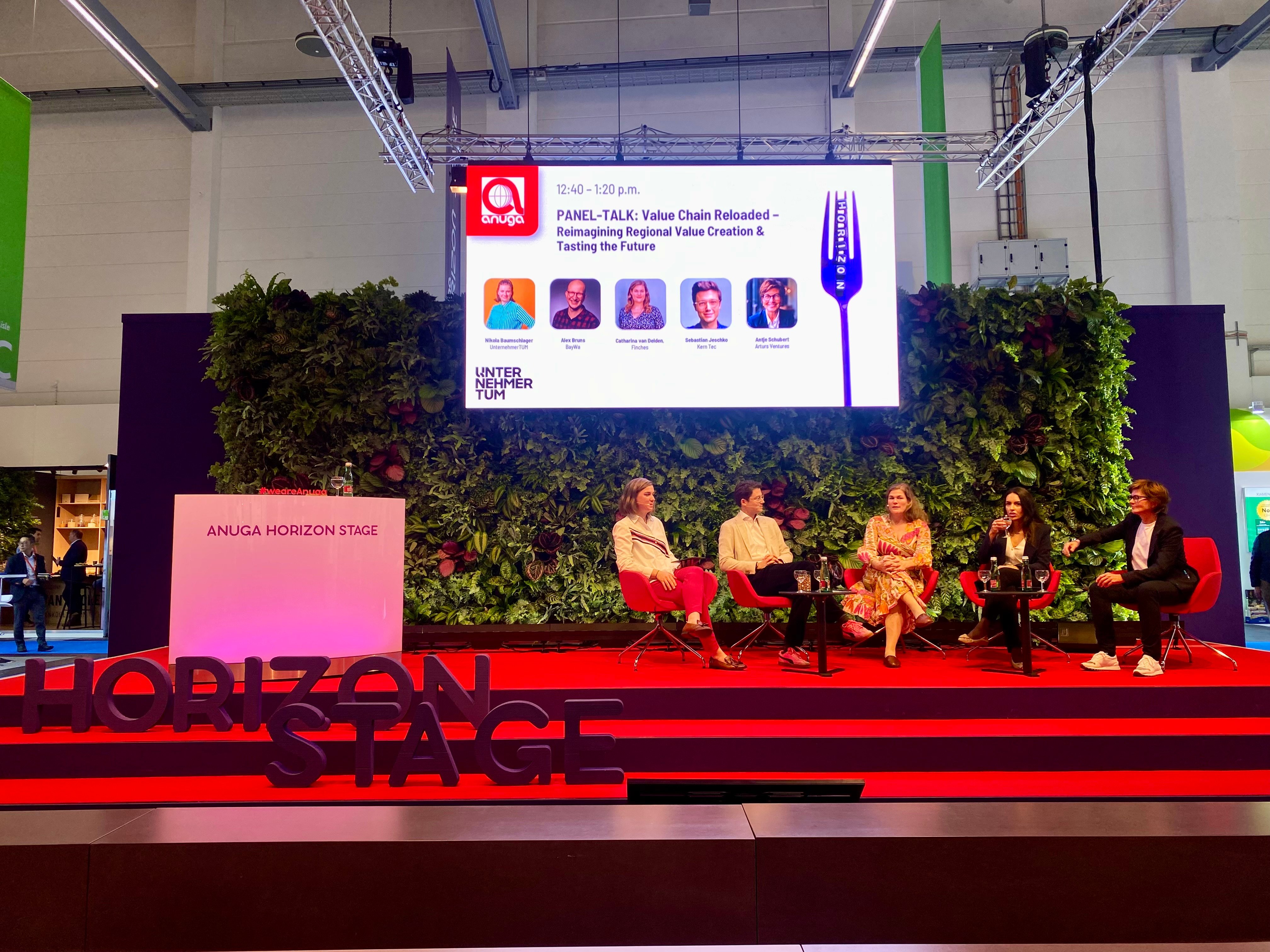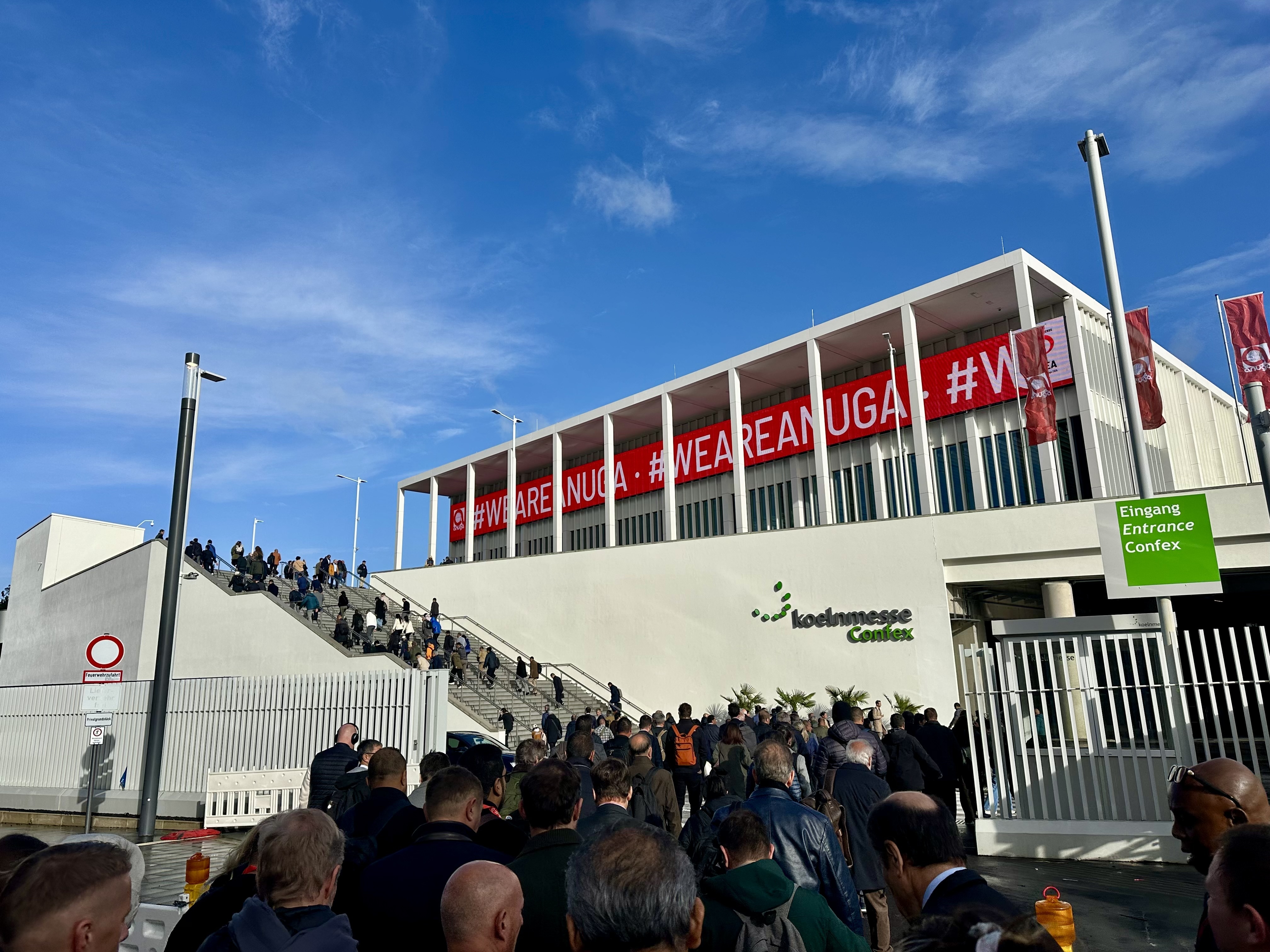We’ve all seen the headlines: empty shelves, skyrocketing food prices, and delivery delays. But here is the hard truth: this isn't a temporary hiccup. This is the new normal.
The fact is, we are operating in a world where volatility is the new baseline. Climate extremes, geopolitical conflict, and fragile logistics systems are converging to put our global food supply under immense pressure. A BCG report released this May projected that yields for key crops could drop by up to 35% by 2050.
This is why building resilience isn't just a buzzword for a quarterly task force: it's essential business management. As co-founder and CEO of Finches, Catharina van Delden, pointed out during the recent "Value Chain Reloaded" panel at Anuga 2025, every single business decision must now account for this new volatility.

From “Black Swans” to Daily Reality
In scenario planning, we used to discuss "black swans" or "wild cards": events that were highly unlikely but had severe impacts. Catharina noted that today, the majority of these formerly unlikely wild cards have come true, transforming risk management into daily operational necessity.
Founder Story: From Farm Losses to AI Risk Tech
For Catharina, this crisis is deeply personal. She is an entrepreneur who built technology specifically for supply chain resilience, stemming from her experience running a family farm where she personally lost her entire harvest due to extreme weather events. Seeing neighbors lose everything drove home the urgency of this challenge.
How AI Risk Mapping Works (Step-by-Step)
Finches is on the frontline, developing software to predict these environmental and agricultural risks early. But the fundamental challenge isn't the data itself; the problem is the lack of understanding the data within a specific business context.
You might know a drought is coming to a region in California, but that generalized data doesn't help if you source hazelnuts from Turkey. You need to understand precisely how that risk applies to your unique value chain.
Here's how AI is transforming agricultural raw material surety:
- Connecting the Dots: Finches’ software maps external environmental data (like changing weather patterns and climate models) with proprietary company data.
- Predictive Modeling: Instead of relying only on historical trends and assuming the past 50 years of weather patterns will continue, we must factor in modern climate models to accurately model the future.
- Deep Operational Insight: Real resilience requires looking beyond simple climate data. Catharina cited a Finches pilot involving Spanish vineyards where climate change caused plants to start growing earlier. This seemingly small change meant the plants hit a certain growth stage where they became more susceptible to a different type of pest. Solving this requires integrating knowledge of climate, plant genetics (how a plant reacts to weather), and pest behavior.
By making sense of this complex, multi-layered data, companies can anticipate risks long before they hit, bridging the gap between the agricultural world and the food world.
Resilience Isn't a Trade-Off, It's Profitability
 In a capitalist world, creating real impact means building businesses that drive profitability and growth. The good news is that resilience is profitability.
In a capitalist world, creating real impact means building businesses that drive profitability and growth. The good news is that resilience is profitability.
As soon as risks threaten core business KPIs – like product price variance, cost of goods sold (COGS), and availability – companies need to pay attention because they are losing significant capital. Making resilience a core part of the daily business manages that risk.
Our ultimate vision, as Catharina shared, is to use AI and data to truly feed the growing world population within a currently failing agricultural system. Leaders who marry resilience with responsibility will win in the long term.
Massive thanks to all the panelists who joined the discussion on "Value Chain Reloaded" at Anuga 2025, including Catharina van Delden (Finches), Sebastian Jeschko (Kern Tec), Antje Schubert (Supervisory & Advisory Board member in the food industry), and Kristal Golan (AgriFoodTech Venture Alliance) - and especially to Nikola Baumschlager (UnternehmerTUM) for the amazing moderation.



 In a capitalist world, creating real impact means building businesses that drive profitability and growth. The good news is that
In a capitalist world, creating real impact means building businesses that drive profitability and growth. The good news is that